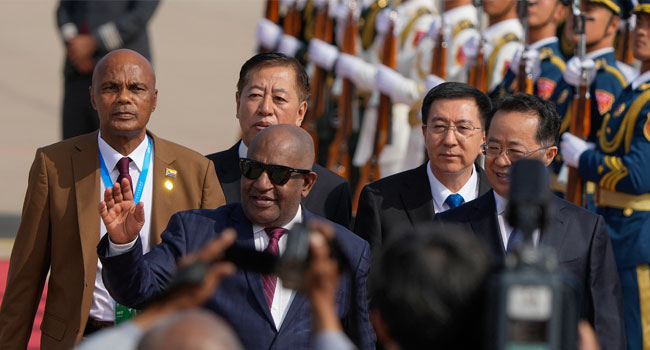African leaders are convening in Beijing for the China-Africa forum, seeking funds for major infrastructure projects amid rising global competition for resources and influence.
Over the past decade, China has strengthened its ties with African nations through extensive loans, which have led to significant development projects but also raised concerns about debt.
With African countries like Kenya, Nigeria, and Ethiopia relying heavily on Chinese financing for key initiatives, some face mounting repayment challenges, forcing leaders to negotiate more favorable terms during this summit.
China, as Africa’s largest trading partner, accounted for $167.8 billion in bilateral trade during the first half of 2024.

However, China’s economic slowdown has led to reduced enthusiasm for further high-value loans.
African countries, particularly those with mineral wealth like cobalt and manganese, are becoming central in the geopolitical race for resources vital to renewable energy.
The competition between the U.S. and China is intensifying, forcing African nations to navigate between these two global powers while seeking continued development partnerships without being drawn into broader geopolitical conflicts.
Despite criticism of Beijing’s debt-trap diplomacy, the Chinese Belt and Road Initiative has financed vital projects across Africa, including transportation, energy, and industrial infrastructure.
However, not all projects have succeeded, with some, like Kenya’s railway expansion, stalling due to financial constraints. Many African leaders now seek more equitable financing arrangements, as their economies struggle to service existing debts.
As great power competition heats up, particularly in resource-rich central Africa, African nations must balance their engagement with both the U.S. and China, leveraging their economic potential to secure the best outcomes.
Get instant and latest news updates via Our WhatsApp Community or Google News online channel.
AFP